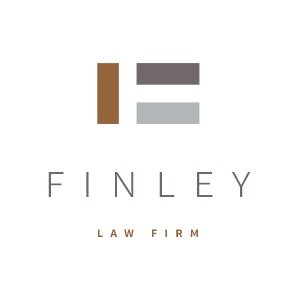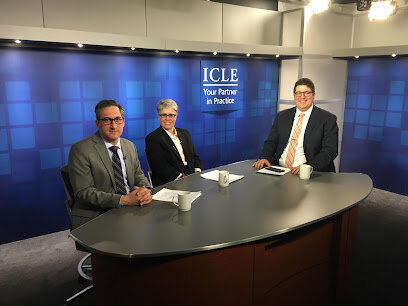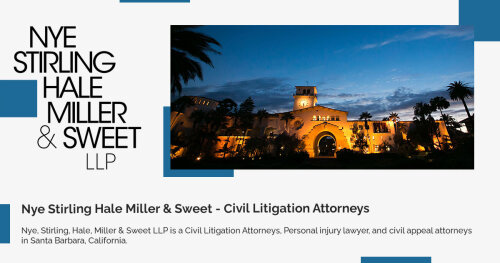Best Pension Lawyers in United States
Share your needs with us, get contacted by law firms.
Free. Takes 2 min.
Or refine your search by selecting a city:
List of the best lawyers in United States
About Pension Law in United States
Pension law in the United States governs the legal and regulatory frameworks related to retirement plans and benefits. Pensions are primarily regulated by the Employee Retirement Income Security Act of 1974 (ERISA), which sets the minimum standards for most voluntarily established pension and health plans in private industry, and aims to protect individuals in these plans. The U.S. Department of Labor's Employee Benefits Security Administration (EBSA) oversees these provisions. Besides ERISA, pensions can be influenced by other laws including the Internal Revenue Code, provisions of securities law, and state laws which can vary extensively.
Why You May Need a Lawyer
Individuals may need legal advice related to pensions in various situations, including:
- Understanding pension eligibility or calculation issues with an employer.
- Handling disputes regarding a denial of pension benefits or improper calculation of benefits due.
- Dealing with pension issues in divorce proceedings, where retirement accounts may need to be divided.
- Facing legal complications when rolling over or transferring pensions during employment changes.
- Ensuring compliance with legal requirements and maximizing benefits when planning for retirement.
Local Laws Overview
Pension laws can vary greatly from state to state, mainly because while ERISA provides a federal framework, each state may have its own laws impacting public pension systems or tax regulations on retirement benefits. Some states also have specific protections for pension benefits in case of bankruptcy or other financial hardships. Understanding the nuances of both federal and state regulations can be pivotal in effectively managing pension-related issues.
Frequently Asked Questions
What is the difference between a defined benefit plan and a defined contribution plan?
A defined benefit plan provides a specified monthly benefit upon retirement, which is predetermined by a formula based on factors such as salary history and duration of employment. A defined contribution plan, such as a 401(k), depends on the contributions made by the employee and/or employer and the returns on the investment of those contributions.
When can I start receiving my pension benefits?
The specific age and conditions to start receiving pension benefits can vary widely between different plans. Many plans have specific age and service requirements, with common ages being 55, 62, or 65. It's important to check your individual plan details.
Can my employer change my pension plan after I've vested?
While employers can make changes to their pension plans, any benefits already accrued by employees are generally protected under ERISA, meaning the benefits cannot be reduced.
What happens to my pension if I change jobs?
If you change jobs, you generally have several options regarding your pension plan. You may leave the pension with your former employer, roll over the funds into another retirement account, or, in some cases, you may cash out, although this can come with penalties and tax implications.
What are the tax implications of receiving pension benefits?
Pension benefits are usually taxable income once received. However, there are often tax strategies available to manage the impact. This varies depending on the type of plan and individual circumstances.
How does a Qualified Domestic Relations Order (QDRO) affect my pension?
A QDRO is a legal order entered as part of a divorce or legal separation that divides and changes ownership of a retirement plan to give the divorced spouse their share of the asset. It can cover defined benefit and contribution plans.
Are public pensions different from private pensions?
Yes, public pensions are typically governed by specific state and local laws rather than ERISA, and they often provide different benefits, protections, and obligations.
Can pension benefits be inherited?
It depends on the plan's terms. Some pensions allow benefits to be distributed to a beneficiary or spouse upon the death of the participant, while others may not.
What should I do if I suspect a miscalculation in my pension benefits?
If you suspect a miscalculation, you should review the plan’s grievance and appeal procedures and possibly consult a lawyer specializing in pension law to understand your rights and the necessary steps to correct the error.
What is the Pension Benefit Guaranty Corporation (PBGC)?
The PBGC is a federal agency that protects the retirement incomes of millions of Americans in private-sector defined benefit pension plans. If a plan terminates without sufficient funds, the PBGC can step in to ensure participants receive their benefits up to a legal maximum.
Additional Resources
For additional guidance and resources, consider reaching out to or consulting the following:
- The U.S. Department of Labor's Employee Benefits Security Administration (EBSA).
- The Pension Benefit Guaranty Corporation (PBGC).
- Local state pension boards or retirement system offices.
- Pension Rights Center for various advocacy and informational materials.
Next Steps
If you need legal assistance regarding pension issues, consider the following steps:
- Gather all relevant plan documents and communication records with your employer or plan administrator.
- Consult with an attorney who specializes in pension law to evaluate your case and provide guidance on potential solutions.
- You may also choose to reach out to local or state bar associations for lawyer referrals or legal aid services available in your area.
Having professional legal support can greatly facilitate the resolution of pension disputes and help you maximize your retirement benefits while ensuring compliance with applicable laws and regulations.
Lawzana helps you find the best lawyers and law firms in United States through a curated and pre-screened list of qualified legal professionals. Our platform offers rankings and detailed profiles of attorneys and law firms, allowing you to compare based on practice areas, including Pension, experience, and client feedback.
Each profile includes a description of the firm's areas of practice, client reviews, team members and partners, year of establishment, spoken languages, office locations, contact information, social media presence, and any published articles or resources. Most firms on our platform speak English and are experienced in both local and international legal matters.
Get a quote from top-rated law firms in United States — quickly, securely, and without unnecessary hassle.
Disclaimer:
The information provided on this page is for general informational purposes only and does not constitute legal advice. While we strive to ensure the accuracy and relevance of the content, legal information may change over time, and interpretations of the law can vary. You should always consult with a qualified legal professional for advice specific to your situation.
We disclaim all liability for actions taken or not taken based on the content of this page. If you believe any information is incorrect or outdated, please contact us, and we will review and update it where appropriate.
Browse pension law firms by state in United States
Refine your search by selecting a state.

















